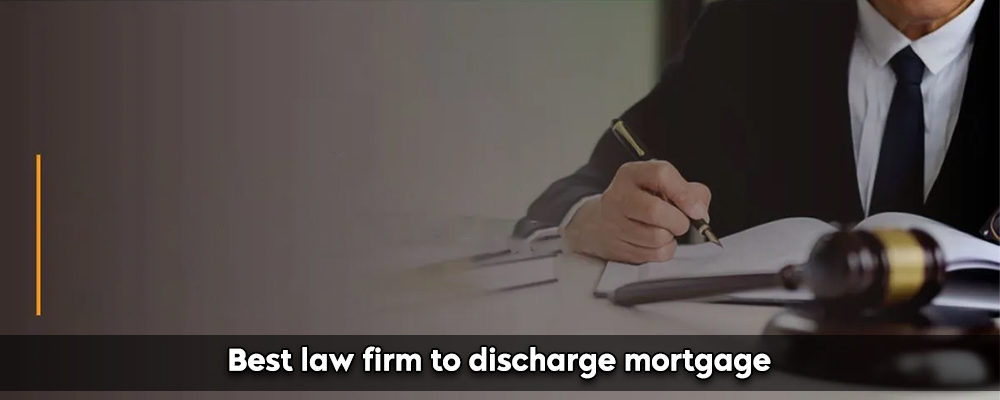Mortgage is defined in Section 58 of the Transfer of Property Act and Section 2(17) of the Indian Stamp Act. The definition of a mortgage is mortgage A deed is any document in which one person transfers or creates, to or in favor of another, a right over or in respect of the specified property to secure funds advanced or to be advanced, by way of a loan, an existing or future debt, or the fulfillment of an engagement.
A mortgage is a transfer; it does not transfer ownership rights. Its primary function is to transmit an interest to guarantee repayment of funds granted as loans. A mortgage is defined as the transfer of an interest in a specific piece of immovable property to secure:
- The reimbursement of funds obtained through a loan.
- A debt, either current or future, or
- The fulfillment of a task that could result in financial obligation.
A mortgagee is the transferee, and a mortgagor is the transferor.
Need A Legal Advice
The internet is not a lawyer and neither are you. Talk to a real lawyer about your legal issue

Conditions under which a mortgage may be released
- When the homeowner wants the mortgage to be removed from their title.
- When there are still outstanding mortgages and the mortgagor wants to transfer the property.
- If a homeowner has a mortgage endorsed on many Certificates of Title and wants to sell one of the properties, he can complete a partial discharge for that specific Title.
- If a Jamaican court issues an order directing the discharge of the mortgage.
- Statutory releases under the Registration of Titles Act’s Sections 121(2) and 123.
- The mortgagor will have discharged other obligations and paid back the loan in full or in part in all situations other than.
Within the Registration of Titles Act, who is eligible to discharge a mortgage?
The mortgagee (the lending institution) or his transfers may discharge a mortgage under section 121(1) of the Act by presenting a memorandum that has been signed by him. The Registrar of Titles may discharge the mortgage under Section 121(2) if the Registrar is satisfied that the mortgagor has either died, departed Jamaica, or vanished and cannot be located, and that the principal and interest have been paid. In addition, Section 123 gives the Registrar of Titles the authority to cancel the mortgage once the Accountant General issues a receipt attesting to the payment of the principal and interest.
Methods for Paying Off a Mortgage
Before being lodged with the Titles Office, a discharge memo that has been correctly filled and signed must be turned in to the Stamp Office. Nonetheless, there are several exceptions to this rule, since credit unions and government organizations are not required to pay stamp duties. A partial mortgage discharge is also exempt from stamp duty.
- Specifics of the mortgagee: As stated on the Title, the volume and folio number must be stated in the discharge memorandum. The Mortgagee’s name needs to match the one endorsed on the title. A Change of Name application must be filed with the Discharge document if the mortgagee has since changed its name. For example, unless a name change is initially indicated on the title, the new company MSB Limited is unable to discharge a mortgage endorsed to Mutual Security Bank. The specifics of the mortgage, such as the number of the mortgage, the date of registration, the loan amount, and the degree of discharge, should all be made explicit in the document. It is necessary to include the mortgagee’s address. If the address is local, the parish needs to be mentioned. The name of the nation must be provided when the address is located abroad.
- The specifics of the mortgage, such as the number of the mortgage, the date of registration, the loan amount, and the degree of discharge, must all be expressed in the document. It is necessary to include the mortgagee’s address. Should the address be local, the parish needs to be mentioned. The name of the nation must be provided when the address is located abroad.
- The mortgagor applies to the registrar of Titles by section 121(2) to discharge the mortgage. The mortgagee’s details are provided as mentioned above. To the satisfaction of the registrar, the mortgagor must, however, provide receipts or other proof that the money secured by the mortgaged land, along with any interest and arrears, has been paid back and that the mortgagee has either passed away, departed Jamaica, or vanished and cannot be located. The mortgage on the original and duplicate titles will be discharged if the Registrar is satisfied with the proof presented.
A range of legal services, including online resources and free legal advice are offered by Lead India. You can talk to a lawyer here and ask legal questions.





 Talk to a Lawyer
Talk to a Lawyer